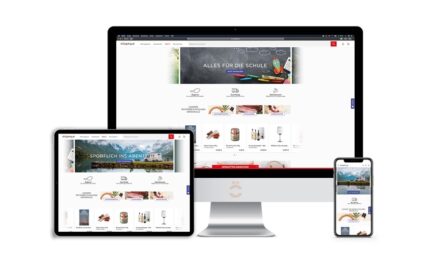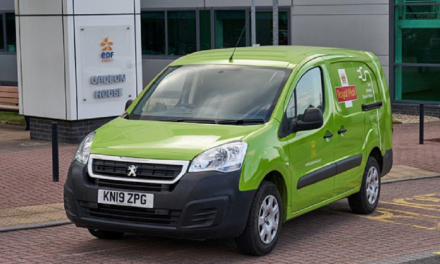
Will he put his stamp on our post? Klaus Zumwinkel Interview
Klaus Zumwinkel's Deutsche Post is spreading across the globe. Now it wants to muscle in on Britain's lucrative business mail market
Introducing Klaus Zumwinkel, chairman and chief executive of Deutsche Post, the German logistics giant – you won't have heard of him, but this is the man who wants to deliver your letters. If, that is, he can get a foothold in the British mail market.
Zumwinkel, a silver-haired, smooth-tongued, global super-executive, has spent the past 13 years transforming the old German state post office into the world's biggest express delivery and logistics company – owner of the DHL and Danzas brands, and recent purchaser of Securicor Omega over here. Next, he wants to push his firm into every letter delivery market in Europe as each opens up to competition. His vision: to pop your parcels and letters from pillar to post with, dare I say it, Teutonic efficiency.
But guess what? We Brits are already in a tangle about how we are going to let the likes of Deutsche Post and its great rival TPG, which runs the Dutch postal service, get their feet in the door of our precious mail system.
The problem, says Zumwinkel, with just a hint of exasperation, is that his firm can only run a service if it can utilise Royal Mail's home delivery system – you don't want rival posties on the beat – and that can only work if they can find out how much Royal Mail will charge them for carrying post. And Royal Mail is contesting the charges set by the British postal regulator. Result? Confusion and delay.
"We want to bring another choice to customers here," says Zumwinkel with a sigh, "and we want to use Royal Mail for the last mile. That is normal. In most other countries, like the Netherlands and Germany, there is a price list for using this kind of delivery system. And we have a licence to do that, but the pricing regime and all the stuff between Royal Mail and the regulator – it's a mess."
Well, that's Britain for you. Zumwinkel, of course, is not really aiming to sell to you and me, but to business customers who provide four-fifths of mail by volume. And to be fair, he knows just how painful it is separating a state monopoly from its market – he's run one himself in Germany. But his transformation of the German post office into Deutsche Post World Net, a partly privatised global delivery leviathan, is beyond the ken of those of us who read daily about Royal Mail's big losses and constant strike disruption.
Zumwinkel now operates in a very different world. Last week he squeezed a day in London between 24 hours each in Stockholm and Amsterdam – indicative of the German post office's growing ambitions. Corporate communications chief to one side of him, UK subsidiary boss to the other, beyond him a media manager taking notes, PR people thronging the corridor, he gave what amounted to a regal audience sitting behind a vast, shiny table in a palatial meeting room in an exceedingly posh Knightsbridge hotel overlooking Hyde Park. Anyone stumbling in from Royal Mail might just wonder what on earth was going on.
Well, if they didn't know Deutsche Post was coming, they do now. Zumwinkel – forget the fact his name sounds like a Mel Brooks character, he's actually a McKinsey-trained finance whiz – was in town to help elucidate exactly what his firm's intentions are.
In short, it wants to compete. Using the DHL brand and backed by a group turnover of Euro 39billion (Pounds 27billion), it already straddles the globe, but despite getting a licence to take on the Royal Mail, it can't get started here. "I need a transparent pricing regime, then I can decide what we are going to do," he says, raising his hands. And he puffs out his cheeks.
Slim, medium-height with grey hair pushed back, Sven Goran-style, Zumwinkel, 59, is one of Germany's best-known business figures. Always a careful political operator, he's rather more savvy than your average state monopoly boss: American business school educated, 12 years at McKinsey consultants, with kids going through university in London – "I want them to have an international outlook" – he flits between his Cologne home, Bonn business base, Italian holiday estate and subsidiaries across Europe, America and now Asia with practised ease.
And he certainly doesn't want to upset anyone here. He's in Britain, he says, to help publicise the revamped DHL one-stop-shop brand – the "Coca-Cola of global cross-border express delivery", as he calls it. Deutsche Post, it transpires, is not a name we are going to see much. Surprise, surprise.
"You like my tie?" grins Zumwinkel with a glint in his slate-grey eyes. It carries a rather hideous yellow-and-red striped DHL corporate design. He laughs. He's been round the block enough to know that po-faced Germans with plans for world domination always make other Europeans twitchy.
But ask him nicely and he will admit that Germany has been quicker to work out the possibilities of European integration than most. The German postal market is opening for competition by 2007, and he just wants to offer Europe what his institution has been providing for Germany since the Middle Ages.
That's okay, then. He makes it sound so simple you end up thinking, crikey, why couldn't we have come up with that?
If Zumwinkel knows, he's not saying, though he does slip in the occasional dig, punctuating his near-perfect English with a nice line in dry wit.
What was the German postal service like when he took it over? "It was lacking quality, ran a big deficit, employed 370,000 people, had huge union problems – maybe this sounds familiar to you." Cue arched eyebrow.
Likewise when you ask him why he took an 80% cut in salary to leave his job running Quelle, a successful mail-order firm, more than a decade ago to take on the reorganisation of the German post office. "I thought it would be important if I could do a really good job for what had been a 500-year-old institution. And I had a rich father. Ha-ha."
In fact, his father had built up a retail chain after the second world war which Zumwinkel and his brother had sold. "We put the money in the bank and I went to business school."
He attended Wharton in America and Munster in Germany, and then took a job with McKinsey, advising clients on finance and marketing, until one of his customers, Quelle, offered him a job. He leapt into the then-Deutsche Bundespost in 1990, and now sits on a five-year contract, something UK executives would look on with wonder. "Oh no – it ensures stability," smiles Zumwinkel.
And you might say he's earned it. On top of sorting out the inefficiencies endemic in the old German system, he also had to deal with the absorption of the communist state post office from East Germany. So what was his prescription?
"We put the whole mail system in the shredder and started again, investing in 83 new mail centres working 24 hours a day, seven days a week." The operation was also partly privatised – Deutsche Post is now 50% owned by the German government, with the remaining 12% owned by a bank and 38% by 300,000 shareholders. The intention is for the government to sell its stake before 2007, and not even retain a "golden share" for control.
Now it's in good financial shape – Zumwinkel claims he can pay off the group's debt out of cashflow in 10 months – and has a client list of big corporations using its services.
Others argue that the group, which is now gobbling up firms across Asia, faces formidable problems of integration, and simply doesn't have the managerial depth to be a proper global player. It also has weak operating margins and is already encountering stiff resistance to its ambitions in America, where DHL's rivals Fedex and UPS are throwing everything they can think of in its way. There is little pro-German sentiment there, after the wrangles over lack of support for American military action in the Gulf.
Could politics be the obstacle Zumwinkel hasn't planned for? If he thinks Britain is difficult to bust into, wait until he tries France. Zumwinkel smiles. All obstacles will be overcome. But then, couldn't someone else stride in and buy the German post office after 2007?
"Ja," he says, before giving a look down his long nose. "Theoretically." I'll take that as a no for now, then.
KLAUS ZUMWINKEL'S WORKING DAY
THE Deutsche Post chairman and chief executive wakes just after 6am most days at his house outside Cologne. He usually slips on a track suit and jogs for half an hour before breakfasting on muesli and fruit. His driver picks him up and drives him to his office in Bonn, on the 41st floor of the new Post Tower.
If the day is spent in the office, Klaus Zumwinkel will fill it with meetings, checking on the company's progress. "I give the direction, I say go north. Then my other job, with the help of the meetings, is to check that we are going north."
If not in the office, he is usually on the road, getting round the workforce or travelling to subsidiaries. When in Germany, he is usually home by 8pm, and asleep by midnight, unless he has a business dinner. "But there are too many of them," he says.
VITAL STATISTICS
Born: December 15, 1943
Marital status: married with
two children
School: Gymnasium
Adolphinum, Rheinberg
University: Munster and
Wharton Business School
Salary package: undisclosed
Homes: Cologne and northern Italy
Car: blue Mercedes 420CL
Favourite book: The Open Society and Its Enemies, by Karl Popper
Favourite film: 'I don't see many films'
Favourite music: Jamiroquai
Last holiday: southern Tirol
Interests: mountain climbing












